 W
WA national church is a Christian church associated with a specific ethnic group or nation state. The idea was notably discussed during the 19th century, during the emergence of modern nationalism.
 W
WThe Armenian Apostolic Church is the national church of the Armenian people. Part of Oriental Orthodoxy, it is one of the most ancient Christian institutions. The Kingdom of Armenia was the first state to adopt Christianity as its official religion under the rule of King Tiridates III of the Arsacid dynasty in the early 4th century. According to tradition, the church originated in the missions of Apostles Bartholomew and Thaddeus of Edessa in the 1st century.
 W
WThe Church of Bangladesh is a united Protestant church formed by the union of various Protestant churches in Bangladesh, principally the Anglican and Presbyterian denominations. The Church of Bangladesh is a member of the Anglican Communion and World Communion of Reformed Churches.
 W
WThe Bishop of Greenland is a diocesan bishop of the Church of Denmark, and the leader of the Church of Greenland, which is an episcopal church in the Lutheran tradition.
 W
WThe Bulgarian Orthodox Church, legally the Patriarchate of Bulgaria, is an autocephalous Orthodox jurisdiction. It is the oldest Slavic Orthodox church, with some 6 million members in Bulgaria and between 1.5 and 2 million members in a number of European countries, the Americas, Australia, New Zealand and Asia. It was recognized as autocephalous in 1945 by the Ecumenical Patriarchate of Constantinople.
 W
WThe Anglican Church of Canada is the province of the Anglican Communion in Canada. The official French-language name is l'Église anglicane du Canada. In 2017, the Anglican Church counted 359,030 members on parish rolls in 2,206 congregations, organized into 1,571 parishes. The 2011 Canadian Census counted 1,631,845 self-identified Anglicans, making the Anglican Church the third-largest Canadian church after the Catholic Church and the United Church of Canada. Although Canada has no established church, the Queen of Canada's Canadian Royal Style continues to include the title of Defender of the Faith, albeit not in relation to any specific denomination, and the Canadian Monarch continues her countenance of three Chapels Royal in the Realm.
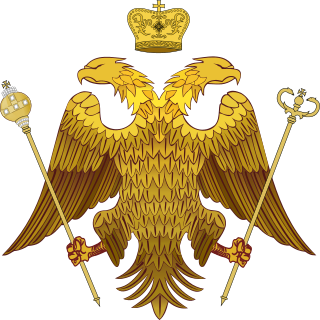 W
WThe Church of Cyprus is one of the autocephalous Greek Orthodox churches that together with other Eastern Orthodox churches form the communion of the Eastern Orthodox Church. It is one of the oldest Eastern Orthodox autocephalous churches; it claims to have always been independent althought it is unclear if it is true or if it was under the Church of Antioch before its autocephaly was recognized in 431 at the council of Ephesus. The bishop of the ancient capital, Salamis was constituted metropolitan by Emperor Zeno, with the title archbishop.
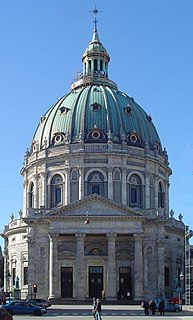 W
WThe Evangelical-Lutheran Church in Denmark or National Church, sometimes called Church of Denmark, is the established, state-supported church in Denmark. The reigning monarch is the supreme secular authority in the church. As of 1 January 2020, 74.3% of the population of Denmark are members, though membership is voluntary.
 W
WThe Church of England is a Christian church which is the established church of England. The archbishop of Canterbury is the most senior cleric, although the monarch is the supreme governor. The Church of England is also the mother church of the international Anglican Communion. It traces its history to the Christian church recorded as existing in the Roman province of Britain by the 3rd-century, and to the 6th-century Gregorian mission to Kent led by Augustine of Canterbury.
 W
WThe Church of Greenland, consisting of the Diocese of Greenland is the official Lutheran church in Greenland under the leadership of the Bishop of Greenland, currently being Paneeraq Siegstad Munk. The Church of Greenland is semi-independent from the Church of Denmark however it is still considered a diocese of the Church of Denmark.
 W
WThe Church of Norway is an evangelical Lutheran denomination of Protestant Christianity and by far the largest Christian church in Norway. The church became the state church of Norway around 1020, and was established as a separate church intimately integrated with the state as a result of the Lutheran reformation in Denmark–Norway which broke ties with the Holy See in 1536–1537; the King of Norway was the church's head from 1537 to 2012. Historically the church was one of the main instruments of royal power and official authority, and an important part of the state administration; local government was based on the church's parishes with significant official responsibility held by the parish priest.
 W
WThe Church of Scotland, also known by its Scots language name, the Kirk, is the national church of Scotland. It is Presbyterian, having no head of faith or leadership group, and adheres to the Bible and Westminster Confession; the Church of Scotland celebrates two sacraments, Baptism and the Lord's Supper, as well as five other rites, such as confirmation and matrimony. It is a member of the World Communion of Reformed Churches.
 W
WThe Church of Sweden is an Evangelical Lutheran national church in Sweden. A former state church, headquartered in Uppsala, with just under 5.8 million members at year end 2020, it is the largest Christian denomination in Sweden, the largest Lutheran denomination in Europe and the third-largest in the world, after the Ethiopian Evangelical Church Mekane Yesus and the Evangelical Lutheran Church in Tanzania.
 W
WThe Coptic Orthodox Church of Alexandria is an Oriental Orthodox Christian church based in Egypt, servicing Africa and the Middle East. The head of the church and the See of Alexandria is the Patriarch of Alexandria on the Holy See of Saint Mark, who also carries the title of Coptic Pope. The See of Alexandria is titular, and today the Coptic Pope presides from Saint Mark's Coptic Orthodox Cathedral in the Abbassia District in Cairo. The church follows the Alexandrian Rite for its liturgy, prayer and devotional patrimony. With approximately 10 million members worldwide, it is the country's largest Christian denomination.
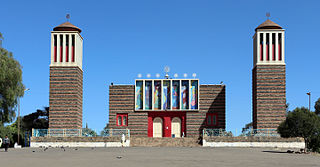 W
WThe Eritrean Orthodox Tewahedo Church is an Oriental Orthodox church with its headquarters in Asmara, Eritrea. Its autocephaly was recognised by Shenouda III, Pope of the Coptic Orthodox Church of Alexandria after Eritrea gained its independence from Ethiopia in 1993.
 W
WThe Evangelical Lutheran Church in the Republic of Namibia is a Lutheran denomination based in Namibia. It has a total membership of about 420,000.
 W
WThe Church of the Faroe Islands is one of the smallest state churches in the world. Prior to becoming independent on 29 July 2007, it was a diocese of the Church of Denmark, a Lutheran church. As of 2019, 79.7% of the Faroe Islanders belonged to the state church.
 W
WThe Evangelical Lutheran Church of Finland is a national church of Finland. It is part of the Lutheran branch of Christianity. The church has a legal position as a national church in the country, along with the Orthodox Church of Finland.
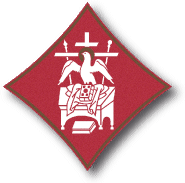 W
WThe Orthodox Church of Finland is an autonomous Eastern Orthodox archdiocese of the Ecumenical Patriarchate of Constantinople. The church has a legal position as a national church in the country, along with the Evangelical Lutheran Church of Finland.
 W
WThe Apostolic Autocephalous Orthodox Church of Georgia, commonly known as the Georgian Orthodox Church or the Orthodox Church of Georgia, is an autocephalous Eastern Orthodox church in full communion with the other churches of Eastern Orthodoxy. It is Georgia's dominant religious institution, and a majority of Georgian people are members. The Orthodox Church of Georgia is one of the oldest churches in the world. It asserts apostolic foundation, and that its historical roots can be traced to the early and late Christianization of Iberia and Colchis by Saint Andrew in the 1st century AD and by Saint Nino in the 4th century AD, respectively. As in similar autocephalous Orthodox Christian churches, the church's highest governing body is the holy synod of bishops. The church is headed by the Catholicos-Patriarch of All Georgia, Ilia II, who was elected in 1977.
 W
WThe Evangelical Church in Germany is a federation of twenty Lutheran, Reformed (Calvinist) and United Protestant regional churches and denominations in Germany, which collectively encompasses the vast majority of Protestants in that country. In 2019, the EKD had a membership of 20,713,000 members, or 24.9% of the German population. It constitutes one of the largest national Protestant bodies in the world. Church offices managing the federation are located in Hannover-Herrenhausen, Lower Saxony. Many of its members consider themselves Lutherans.
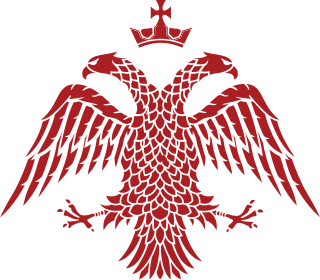 W
WThe Church of Greece, part of the wider Greek Orthodox Church, is one of the autocephalous churches which make up the communion of Orthodox Christianity. Its canonical territory is confined to the borders of Greece prior to the Balkan Wars of 1912–1913, with the rest of Greece being subject to the jurisdiction of the Ecumenical Patriarchate of Constantinople. However, most of the dioceses of the Metropolises of the New Lands are de facto administered as part of the Church of Greece for practical reasons, under an agreement between the churches of Athens and Constantinople. The primate of the Church of Greece is the archbishop of Athens and All Greece.
 W
WThe Reformed Church in Hungary is the largest Protestant church in Hungary, with parishes among the Hungarian diaspora abroad. Today, it is made up of 1,249 congregations in 27 Presbyteries and four Church districts and has a membership of over 1.6 million, making it second only to the Roman Catholic Church in terms of size. As a Continental Reformed church, its doctrines and practices reflect a Calvinist theology, for which the Hungarian term is református.
 W
WThe Evangelical Lutheran Church of Iceland, also called the National Church, is the officially established Christian church in Iceland. The church professes the Lutheran faith and is a member of the Lutheran World Federation, the Porvoo Communion, and the World Council of Churches.
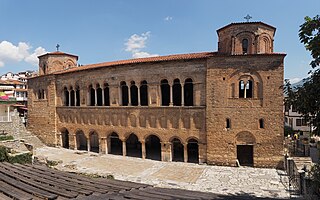 W
WThe Macedonian Orthodox Church – Ohrid Archbishopric, or simply the Macedonian Orthodox Church, is the largest Christian church in North Macedonia. As an independent Eastern Orthodox jurisdiction it is not canonically recognized by the other Eastern Orthodox Christian churches. The Macedonian Orthodox Church claims ecclesiastical jurisdiction over North Macedonia and is also represented in the Macedonian diaspora.
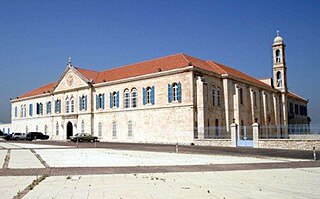 W
WThe Maronite Church is an Eastern Catholic Church, one of 23 such Eastern Catholic sui iuris particular churches in full communion with the pope and the worldwide Catholic Church, with self-governance under the Code of Canons of the Eastern Churches. It is headed by Patriarch Bechara Boutros al-Rahi since 2011, seated in Bkerke northeast of Beirut, Lebanon. Officially known as the Syriac Maronite Church of Antioch, it is part of Syriac Christianity by liturgy and heritage.
 W
WThe Evangelical Lutheran Church in Namibia (ELCIN) is a Lutheran denomination based in Namibia. It has a total membership of over 772,398, mainly in Northern Namibia. Formerly known as the Evangelical Lutheran Ovambo-Kavango Church, it played a significant role in opposition to Apartheid in Namibia and was part of the Namibian independence struggle.
 W
WThe German-speaking Evangelical Lutheran Church in Namibia is a Lutheran denomination based in Namibia. It was founded in 1960, and has 4,434 members.
 W
WThe Church of Nigeria is the Anglican church in Nigeria. It is the second-largest province in the Anglican Communion, as measured by baptized membership, after the Church of England. It gives its current membership as "over 18 million", out of a total Nigerian population of 190 million.
 W
WThe United Church in Papua New Guinea and Solomon Islands is United church in Methodist and the Reformed tradition.
 W
WThe Lusitanian Catholic Apostolic Evangelical Church in Portugal is a member church of the Anglican Communion. Like all Anglican Communion churches, it recognises the spiritual leadership of the Archbishop of Canterbury. In addition, the church is an extra-provincial diocese under the metropolitical authority of the archbishop. The current bishop is Jorge Pina Cabral.
 W
WThe Russian Orthodox Church, alternatively legally known as the Moscow Patriarchate, is one of the autocephalous Eastern Orthodox Christian churches. The primate of the ROC is the Patriarch of Moscow and all Rus'. The ROC, as well as its primate, officially ranks fifth in the Orthodox order of precedence, immediately below the four ancient patriarchates of the Greek Orthodox Church: Constantinople, Alexandria, Antioch, and Jerusalem. As of 15 October 2018, the ROC suspended communion with the Ecumenical Patriarch of Constantinople, having unilaterally severed ties in reaction to the establishment of the Orthodox Church of Ukraine, which was finalised by the Ecumenical Patriarchate on 5 January 2019.
 W
WThe Serbian Orthodox Church is one of the autocephalous Eastern Orthodox Christian churches.
 W
WThe Polish-Catholic Church in United Kingdom is a Polish-Catholic Church in United Kingdom registered under number SC594199.